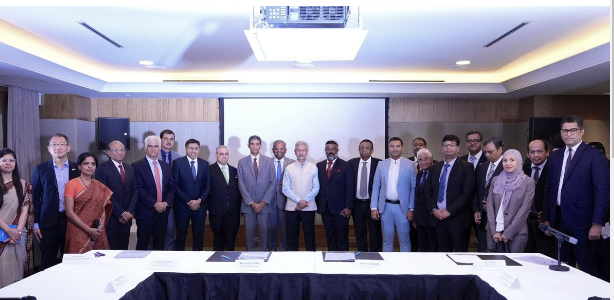The Palestinian-Israeli conflict remains one of the most protracted and contentious issues in international politics, with far-reaching implications for regional stability and global diplomacy. In recent developments, India’s External Affairs Minister, Dr. Subrahmanyam Jaishankar, delivered a blunt message regarding the denial of a homeland to Palestinians and emphasized the need for a just and lasting solution to the conflict. This article explores the context of Jaishankar’s remarks, India’s stance on the Israeli-Palestinian conflict, and the broader implications of such statements on regional dynamics and India’s foreign policy.
Historical Context of the Israeli-Palestinian Conflict Jaishankar:-
The Israeli-Palestinian conflict traces its roots back to the late 19th and early 20th centuries, with competing claims to the land of historic Palestine by both Jews and Arabs. Following World War I and the collapse of the Ottoman Empire, the British Mandate for Palestine was established, laying the groundwork for the eventual establishment of the state of Israel in 1948.
The creation of Israel led to the displacement of hundreds of thousands of Palestinians, who became refugees in neighboring countries or were internally displaced within the newly formed state. Since then, the conflict has been characterized by territorial disputes, military occupation, settlement expansion, and recurrent cycles of violence.
India’s Historical Support for the Palestinian Cause:
India has traditionally been a staunch supporter of the Palestinian cause, rooted in its solidarity with anti-colonial struggles and its commitment to principles of international law and justice. India was among the first countries to recognize the Palestine Liberation Organization (PLO) as the sole legitimate representative of the Palestinian people in 1974.
Throughout the decades, India has consistently advocated for a just and comprehensive resolution to the Israeli-Palestinian conflict based on the principles of a two-state solution, with Israel and Palestine existing side by side within secure and recognized borders. India has also provided diplomatic and humanitarian support to the Palestinian people, including development assistance and scholarships for Palestinian students.
Recent Developments and India’s Blunt Message :
In recent years, the Israeli-Palestinian conflict has witnessed escalating tensions, with periodic outbreaks of violence, settlement expansion, and a lack of progress in peace negotiations. The Trump administration’s recognition of Jerusalem as the capital of Israel and its support for Israeli annexation of occupied territories further complicated efforts to resolve the conflict.
Against this backdrop, India’s External Affairs Minister, Dr. S. Jaishankar, delivered a blunt message during a meeting with his Israeli counterpart, Yair Lapid, emphasizing the importance of addressing the root causes of the conflict and the denial of a homeland to the Palestinians. Jaishankar reiterated India’s longstanding support for the Palestinian cause and called for renewed efforts to achieve a two-state solution.  for more information click on this link
for more information click on this link
Implications for Regional Dynamics and India’s Foreign Policy:
Jaishankar’s remarks signal India’s continued commitment to the principles of justice, equity, and multilateralism in its approach to the Israeli-Palestinian conflict. By speaking out against the denial of a homeland to Palestinians, India reaffirms its support for the rights and aspirations of the Palestinian people and underscores the importance of addressing the root causes of the conflict.
Moreover, India’s blunt message to Israel reflects its growing assertiveness in international affairs and its willingness to engage with key stakeholders on sensitive issues of global concern. As a rising power with aspirations for a greater role on the world stage, India’s stance on the Israeli-Palestinian conflict carries weight and could influence regional dynamics in the Middle East.
Conclusion:
India’s External Affairs Minister, Dr. S. Jaishankar’s blunt message regarding the denial of a homeland to Palestinians underscores India’s steadfast support for the Palestinian cause and its commitment to a just and lasting solution to the Israeli-Palestinian conflict. By speaking out on this issue, India reaffirms its principles of solidarity, justice, and multilateralism in its foreign policy approach.
As the conflict continues to evolve, India’s role as a key player in international diplomacy becomes increasingly significant. By engaging with all parties involved and advocating for a peaceful resolution based on the principles of international law and justice, India can contribute to efforts to achieve a just and comprehensive peace in the Middle East. check the post




